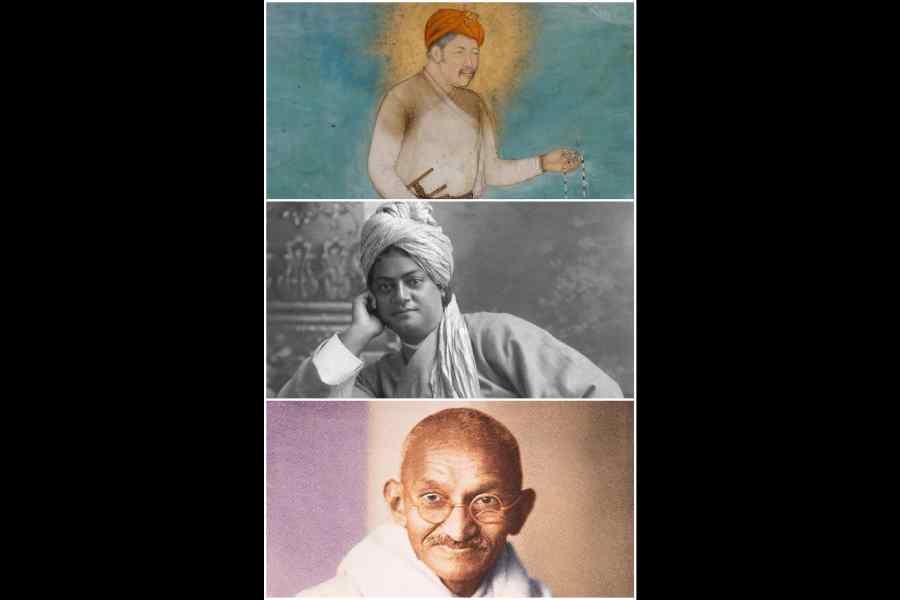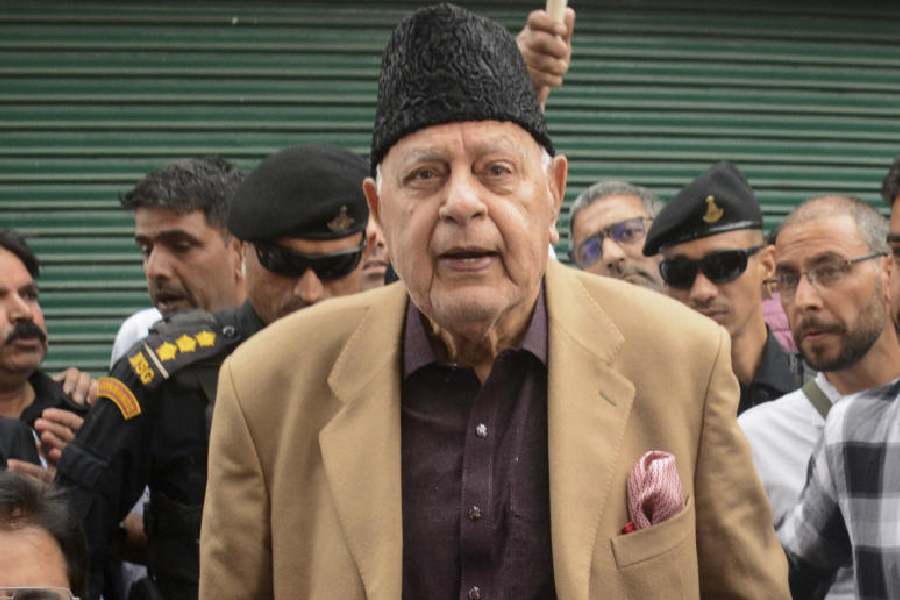One of the great challenges of the modern world is how to get people of different faiths to live peaceably together. The creation of nation-states on the principle of religious majoritarianism in the Middle East and South Asia and the migration of non-Christian populations to Europe and North America have generated bitter and often violent conflicts on the basis of religion. Arrogance and a sense of superiority generally tend to win out over tolerance and mutual understanding.
The case for greater inter-faith understanding has been persuasively made by the American scholar, Thomas Albert Howard, in his book, The Faith of Others: A History of Interreligious Dialogue (New Haven: Yale University Press, 2021). Much of Howard’s book focuses on Christianity, the religion he is himself most familiar with. Christian theologians were once utterly convinced that theirs was the only true faith. In the twentieth century, this began to change. Once known for its spiritual arrogance, in the 1960s, the Catholic Church began a slow process of acceptance of other faiths. In an encyclical of August 1964, the pope said that his Church would “recognize and respect the moral and spiritual values of the various non-Christian religions”. A quarter century later, another pope went further, remarking that “dialogue does not originate from tactical concerns or self-interest, but is an activity with its guiding principles, requirements, and dignity.”
Two Indian proponents of inter-faith dialogue feature in Howard’s study. One is the Mughal emperor, Akbar, in writing of whom he largely relies on a book published in 1952 by Makhanal Roychoudhury titled The Din I Ilahi or the Religion of Akbar. I was particularly struck by a letter sent by Akbar to his contemporary, King Philip the Second of Spain. After the expulsion of Jews and Muslims, Spain was becoming increasingly dogmatic in its Catholicism. Akbar asked his counterpart to learn from the Indian case, where “everyone continues, without investigating their arguments and reasons, to follow the religion in which he was born and educated, thus excluding himself from the possibility of ascertaining the truth, which is the noblest aim of the human intellect. Therefore we [in India] associate at convenient seasons with learned men of all faiths, thus deriving profit from their exquisite discourses and exalted aspirations.”
The second Indian exemplar whom Howard considers at some length is Swami Vivekananda, who lived several centuries after Akbar. Like other commentators, he showcases the Swami’s speech at the Parliament of the World’s Religions in Chicago in 1893. He first introduces us to the stated ideals of this Parliament among which were “to promote and deepen the spirit of human brotherhood among religious men of diverse faiths, through friendly conference and mutual good understanding”; and “to bring the nations of the earth into a more friendly fellowship, in the hope of securing permanent international peace.”
Howard then provides some excerpts from Vivekananda’s speech at Chicago. One is the Swami’s affirmation that “he was proud to belong to a religion which has taught the world both tolerance and universal acceptance” and, at the same time, also “proud to belong to a nation which has sheltered the persecuted and the refugees of all religions and all nations of the world.” A second, and perhaps even more pertinent, Vivekananda quote runs as follows: “Sectarianism, bigotry, and its horrible descendant, fanaticism, have possessed long this beautiful earth… But their time has come, and I fervently hope that the bell that tolled this morning [at the Parliament’s opening]… may be the death knell of all fanaticism.”
Howard mentions Gandhi in passing, in other contexts, but unfortunately does not consider his religious thought in depth. In fact, Gandhi was a religious pluralist in a deeper and more radical sense than either Akbar or Vivekananda. He pursued inter-faith dialogue, and also practised inter-faith social action. His satyagrahas, whether in South Africa or in India, sought to bring into their fold individuals from all the religions of the world. His ashrams had people of different faiths living in close and continuous proximity, thereby deepening mutual respect and understanding. His inter-faith prayer meeting, with texts and hymns from different religions read and sung, was a remarkable innovation worth remembering in our strife-torn times.
Unlike atheists, Gandhi was prepared to acknowledge that there was a force or spirit beyond human comprehension. Unlike people of faith, he did not believe that his religion provided a special and superior path to god. In September 1924, he wrote an article with the telling title “God is One”. Here he said: “For Hindus to expect Islam, Christianity or Zoroastrianism to be driven out of India is as idle a dream as it would be for Mussalmans to have only Islam of their imagination rule the world… Truth is the exclusive property of no single scripture.”
This rejection of certitude made Gandhi sceptical of efforts at proselytization, whether undertaken by Hindus, Muslims, or Christians. “At the root of missionary effort,” he once wrote, “is also the assumption that one’s own belief is true not only for oneself but for all the world; whereas the truth is that God reaches us through millions of ways not understood by us. In missionary effort therefore there is a lack of real humility.” Speaking for himself, Gandhi said that “I have no feeling that from a spiritual standpoint I am necessarily superior to the so-called savage. And spiritual superiority is a dangerous thing to feel.”
A respect for faiths other than one’s own, a desire to befriend people of other faiths, was, however for Gandhi, not merely a personal choice. It was also a political imperative. In 1941, Gandhi published a thirty-page booklet outlining a “constructive programme” that he hoped every member of the Congress Party would follow. The topics covered here included the abolition of untouchability, the promotion of khadi, the upliftment of women, and the pursuit of economic equality.
Crucially, the first element in the programme was that of “communal unity”. Gandhi wrote that “the first thing essential” for achieving communal unity was “for every Congressman, whatever his religion may be, to represent in his own person Hindu, Muslim, Christian, Zoroastrian, Jew, etc., shortly, every Hindu and non-Hindu. He has to feel his identity with every one of the millions of the inhabitants of Hindustan. In order to realize this, every Congressman will cultivate personal friendships with persons representing faiths other than his own. He should have the same regard for the other faiths as he has for his own.”
This was a credo Gandhi made his own. A highly partial list of Gandhi’s close friends and associates who were not Hindus would include: the Muslims, Abdul Kader Bawazeer, A.M. Cachalia, Abul Kalam Azad, Zakir Hussain, Asaf Ali, and Raihana Tyabji; the Christians, Josiah Oldfield, Joseph Doke, C.F. Andrews, J.C. Kumarappa, Muriel Lester, and Rajkumari Amrit Kaur; the Parsis, Dadabhai Naoroji, Jivanji Gorcoodoo Rustomjee, and Khurshid Naoroji; the Jews, Hermann Kallenbach, Sonja Schlesin, Henry Polak, and L.W. Ritch; the Jains, Pranjivan Mehta and Raichand; the atheist, G. Ramachandra Rao (‘Gora’).
There is one gap in this otherwise capacious list. Possibly because he had few connections to the Punjab, Gandhi did not have a close Sikh friend (though Amrit Kaur’s family was originally Sikh). Yet this was a trifling blemish, especially when one compares Gandhi to his great Western contemporaries — Churchill, Roosevelt, De Gaulle and so on whose friends were overwhelmingly, if not wholly, from their own Christian faith.
At first sight, Gandhi seems to have failed in his pursuit of religious pluralism. It did not stop the creation of an Islamic homeland named Pakistan. And in the India that remained, the inter-faith tolerance that his political successor, Jawaharlal Nehru, practised has long been consigned to the ash-heap. Hindutva, which seeks to create a Hindu Pakistan, is ascendant if not dominant.
On the other hand, it may be that Gandhi’s apparent defeat makes the renewal of his legacy even more urgent for India and Indians. The people of Pakistan have not been made more peaceful or prosperous by the assertion of Islamic majoritarianism. Nor has Buddhist majoritarianism led to a happier outcome in Sri Lanka. Therefore, for politicians as well as the aam aadmi to cultivate friendships across religious boundaries may yet be a necessary first step towards restoring the health of the Republic.
ramachandraguha@yahoo.in











